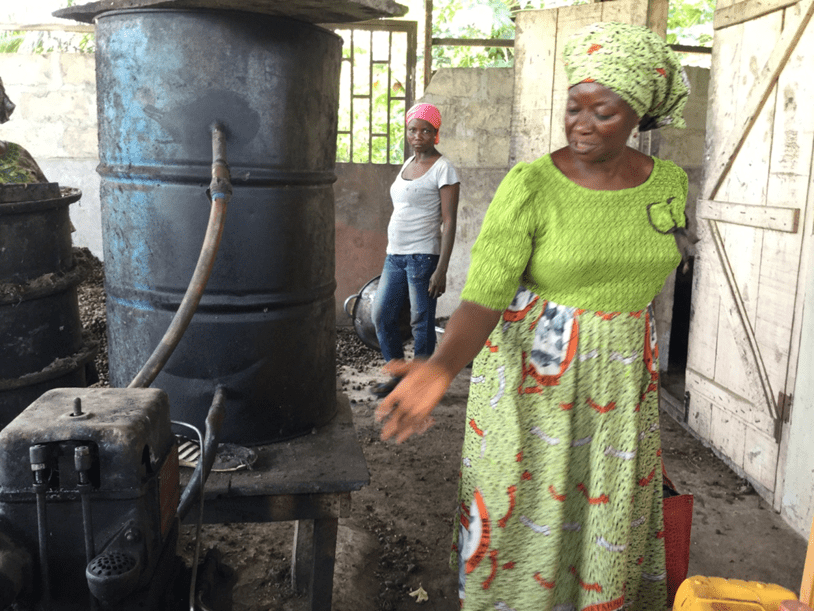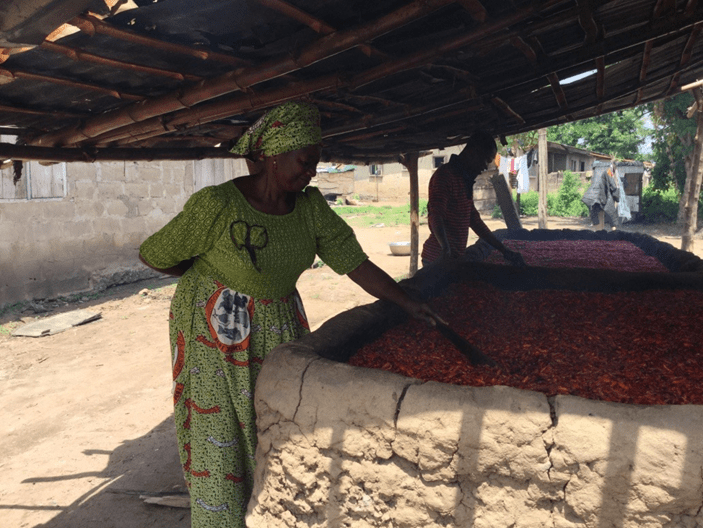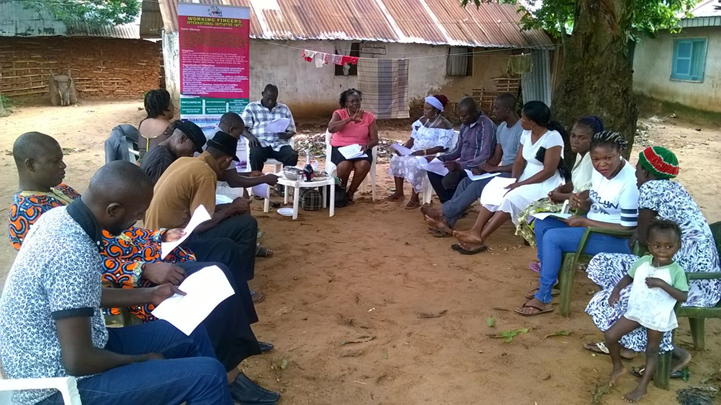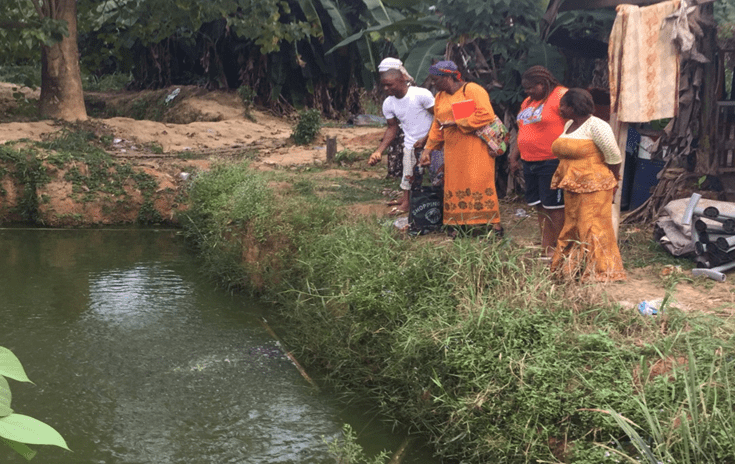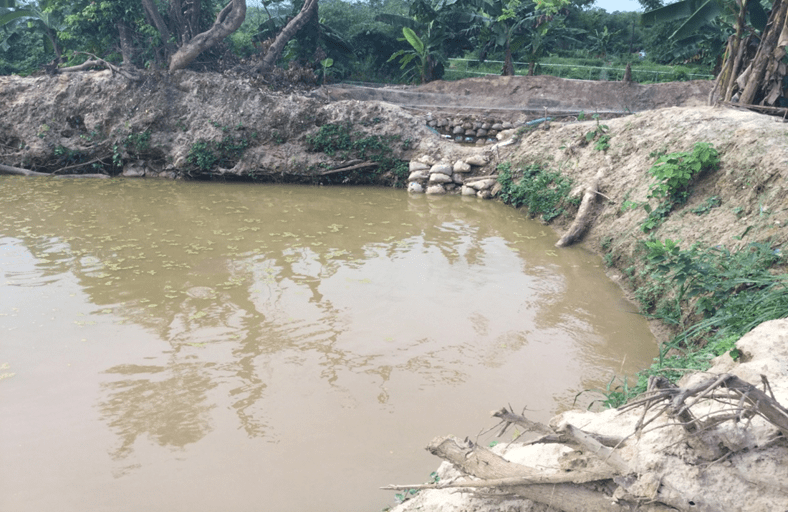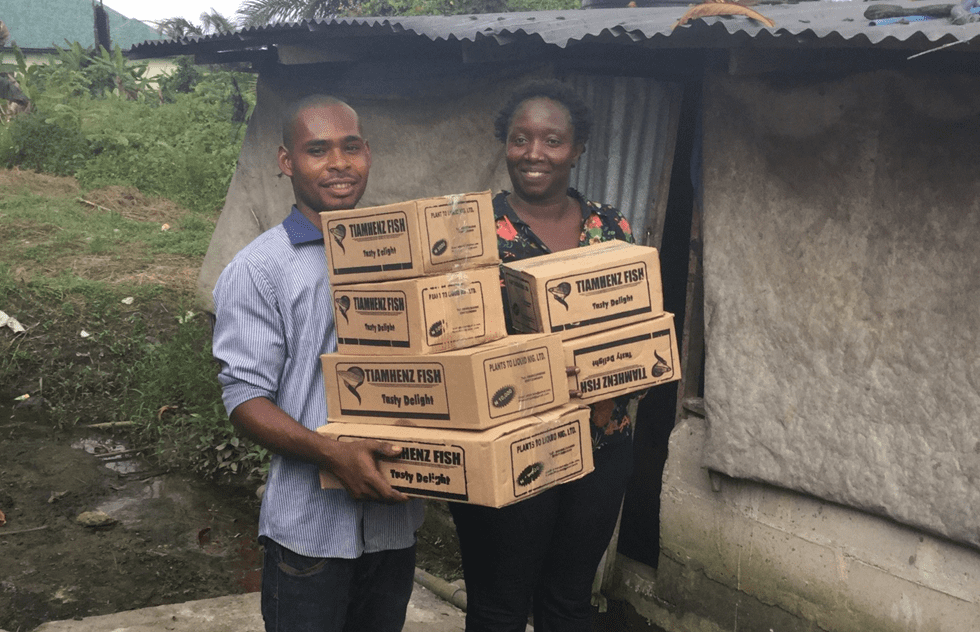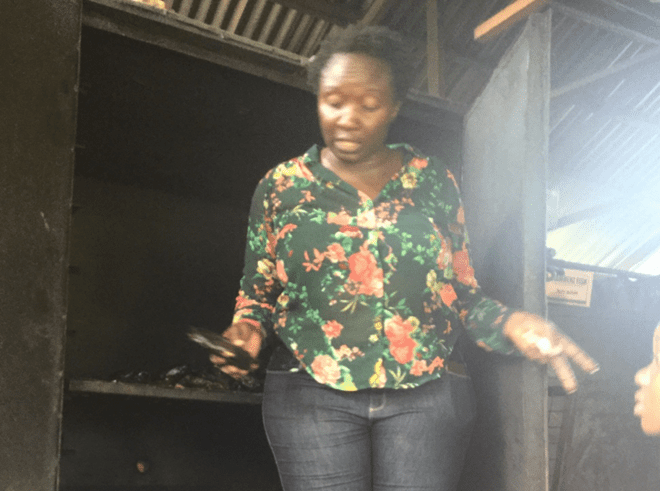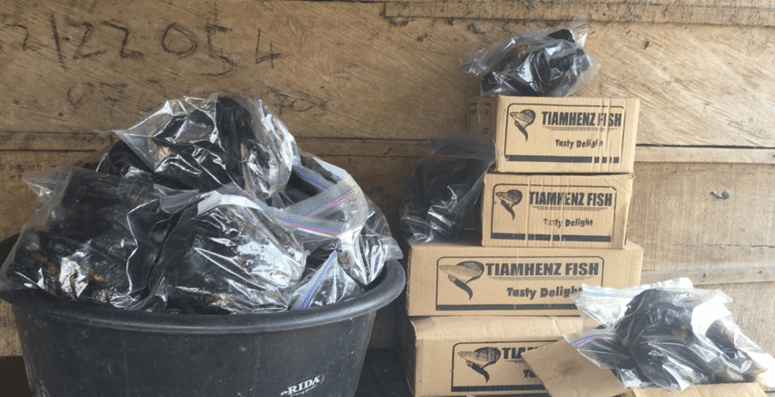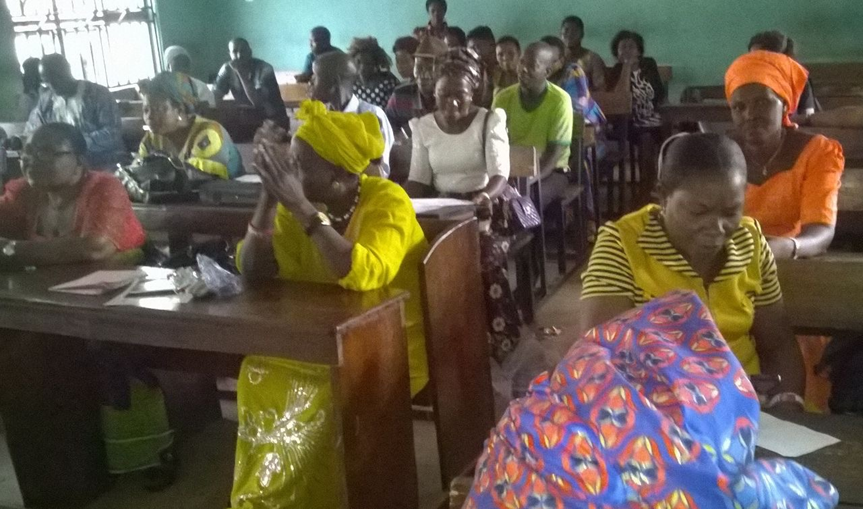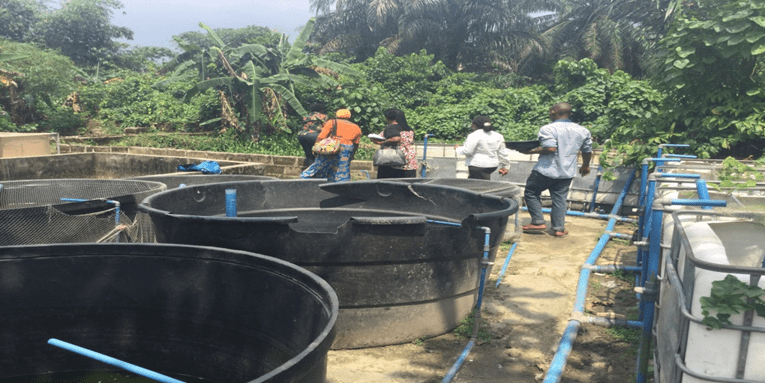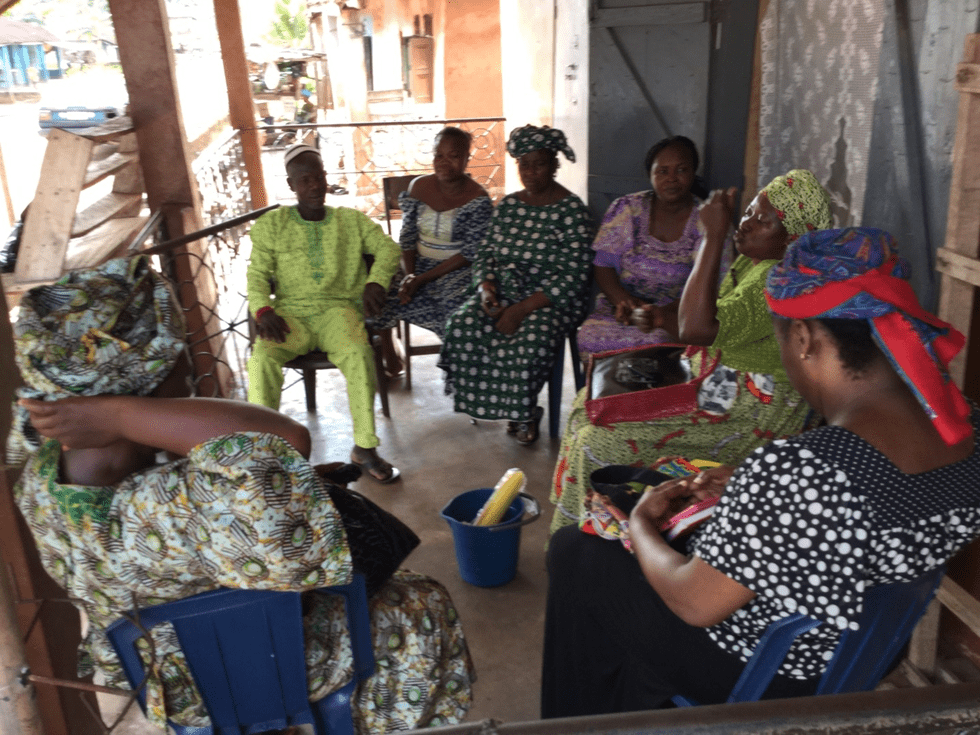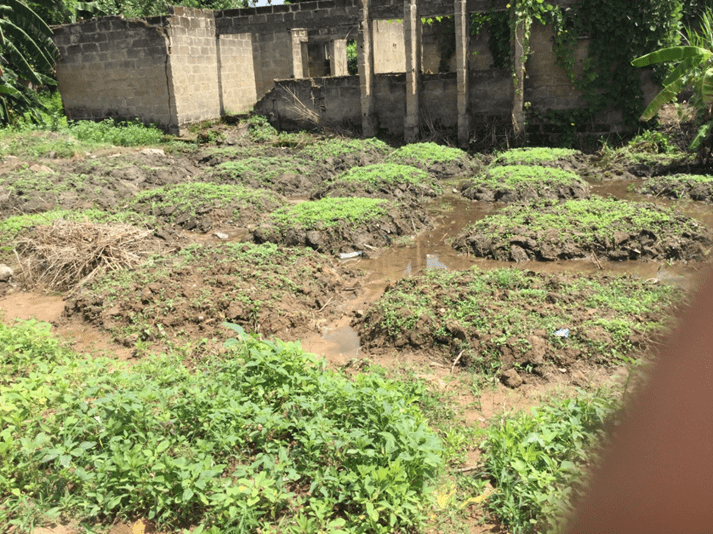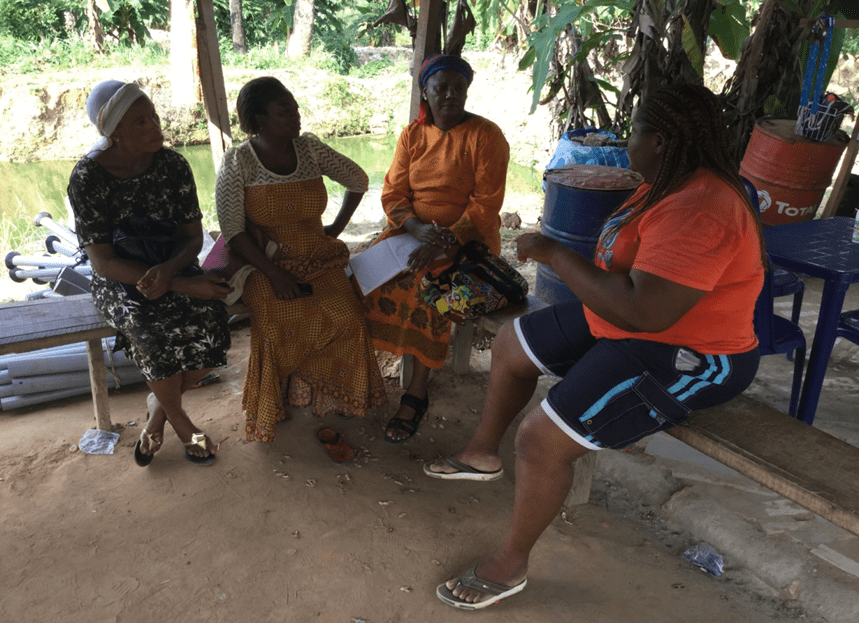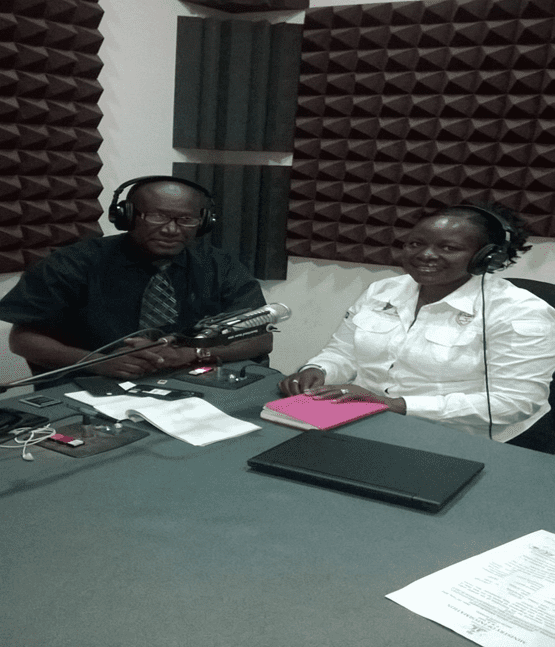The International Women’s Day (IWD) is a day set aside the world over to celebrate women and their contributions to humanity. This year’s occasion titled ‘Pledge for Parity’ was geared to celebrate women farmers and discuss how women could achieve economic parity through agriculture. This theme is important to us because it deeply aligned with one of our guiding principles as we promote gender equality in the Niger Delta region.
It is in line with our core vision that, in our International Women’s Day event which took place in Asaba, Delta state, on March 8, 2016, we promoted dialogue between women farmers and increased their access to finance and information.
Months after the IWD event, we followed up on the women who attended the event and were gladdened to learn that many of them are making strides towards economic parity through agriculture and overcoming their previous challenges.
During our IWD event, we encouraged women to take up leadership positions, and this resonated with Madam Josephine Ehoho-Acquaye, Chairperson of United Ufuoma Fish Farmers Association (UUFFA) in Warri, Delta State. Before the 2016 IWD event, all she was concerned with was minding her fish business but right now, she is open to leading, learning and networking opportunities which often shares during her feedback sessions with members of the association.
“I was greatly motivated by the IWD event to think hard and expand my business from small to big,” she told us. “. Presently, I own 52 fish ponds. And as a part of the step down information sharing mechanism in our association, I now encourage women to work hard, expand their businesses and aspire to leadership roles in their various communities. I believe that achieving economic development is a key driver for that to happen.”
Madam Rosemary Akinnigbagbe, a vegetable farmer in Akure, Ondo State, took the empowerment message of the IWD event to heart, and was also able to expand her vegetable farm and is embarking on further expansion.
“At the moment, my farm is being grown in over 5 acres of land. I now plant various species of vegetable in the Mayowa area of Akure. The association’s support and the networking and learning platform have also helped my business.”
We also encouraged the women present to embrace networking across board, and Nigerian banks with representative present to give loans to women, because access to finance drives growth and is key to access to other things, like land, modern equipment, resources, linkages and agric. service providers.
After the meeting, All Women Farmers in Ondo State moved to establish relationships with extension service providers who are presenting working with their farmers to improve their agronomical practices in cassava, tomatoes, pepper and cocoa for higher yields. Madam Fape, the leader of the association said that “the knowledge gained from the IWD event has helped us as an association and as individuals to re-evaluate our approach to farming as a business. We have a better understanding of the importance of investing in our farms and if need be, apply for bank loans to increase production and productivity. We are also appreciative of the gains of networking which has also provided increased market opportunities for our produce.”
Our Ondo State-based partners in organising the IWD event Working Fingers International (WFI) also organized a workshop to sensitize rural female farmers on improved yields and the importance of dignity of labor as farmers. A representative from each of the state’s twenty-five (25) LGAs attended the workshop on 6 June in Akure, Ondo State. To promote capacity building, WFI also held a one-day pilot workshop in Okwe, Ondo State, on male involvement in gender issues in the communities, for which eight men and five women were in attendance. The meeting sensitized men on the importance of respecting their wives and encouraging them to embrace the opportunities of gender equality in the society. To further build on the success of the meeting, on the 14th of July, WFI signed a collaborative agreement to conduct a research project on male involvement in gender equity in Okwe.
CAMP 74 in -Asaba, -Delta State, is also taking taking giant strides in definite measures. Our message that women farmers engage in mixed or multi-crop farming- adding crops that can be harvested within very short periods to long term crops to increase income streams, and this gave Camp 74 Fish Farmers Association from Asaba, Delta State, an idea. Mrs. Isi Chie Comfort, the leader of the association told us:said “IWD 2016 is a big eye opener experience for our team. As a result of the meeting, we sought, accessed and paid for a BDS-related training and support from TOP FEEDS Ltd where we learnt about the development of local feeds for our fingerlings instead of relying on foreign feeds which contain tons of preservation. Also, in order to diversify our school of fish, we have learnt how to effectively rear different species of fish (clariasgariepinus (echem)/heteroclarias- hybrid catfish, tilapia) for local consumption and commercial purposes. In fact, I am grateful for PIND.”
These messages helped inspire Madam Nancy Iheduru, the chairperson of The Centre for Creative Development Strategies, Port Harcourt, Rivers State, to revisit a failed attempt at farming.
“Prior to IWD, I had attempted going into farming and failed. But the testimonies on different aspects of agriculture as shared during the event kick-started my lost zeal for agriculture and women empowerment in agriculture. And now my business I just started is thriving. My passion to help women farmers graduate from subsistence to enterprise-based farming has been greatly revived.”
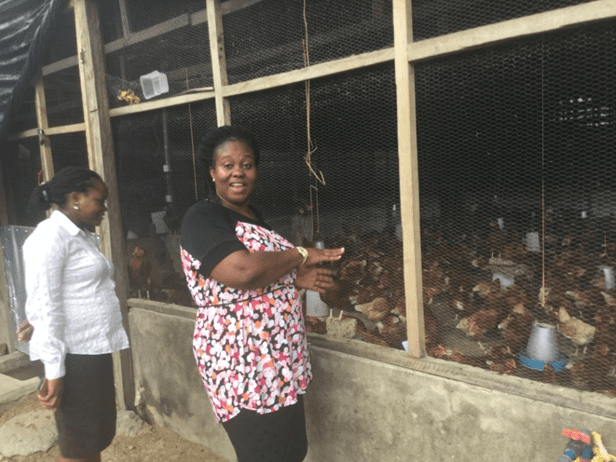
Nancy Iheduru and her staff, Chinyere by their poultry farm
Mrs. Iheduru passed on the motivation to Ms. Edith Claire Niagwan, a young farmer, who now runs a fish farm called Plants to Liquid Nigeria Limited. After six months of operation, Ms. Niagwan’s fish farm has around 32,000 cat fish and 16,000 juveniles (fingerlings which are about a month old and less). She smokes her catfish from on site and has been packaging her fish to different parts of Nigeria.
We are very pleased to see our pledge for parity that we made in March bear fruit in the form of impact in these women’s lives, and will continue to work towards equitable economic development in the Niger Delta.
